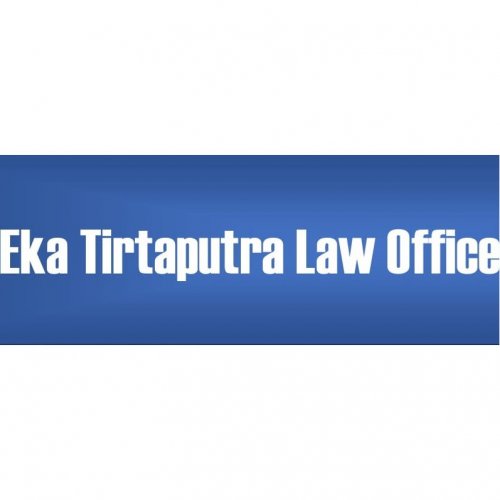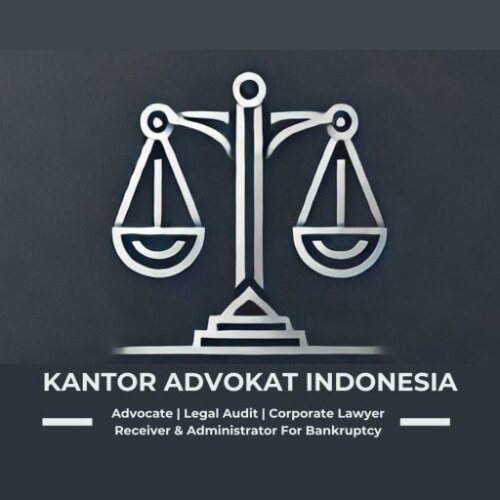Best Energy, Environment & ESG Lawyers in Indonesia
Share your needs with us, get contacted by law firms.
Free. Takes 2 min.
Or refine your search by selecting a city:
List of the best lawyers in Indonesia
About Energy, Environment & ESG Law in Indonesia
Energy, Environment & ESG (Environmental, Social, and Governance) law in Indonesia covers a broad range of regulations and policies that impact the way businesses and individuals interact with energy resources, the environment, and sustainable corporate practices. These areas have become increasingly important as Indonesia continues to develop its economy while balancing environmental conservation and social responsibility. The government has introduced various laws and regulatory frameworks to support sustainable energy use, protect natural resources, and encourage responsible corporate governance. Understanding these legal requirements is crucial for operating a compliant business or project in Indonesia.
Why You May Need a Lawyer
You may need a lawyer specializing in Energy, Environment & ESG if you are involved in activities such as investing in renewable energy, starting a mining or energy project, developing real estate, or if your company is seeking to improve ESG compliance. Lawyers can be invaluable for navigating complex permit processes, ensuring compliance with local and international standards, handling disputes related to environmental damage, structuring contracts that factor in sustainable practices, and representing clients during environmental audits or litigation.
Common situations where legal help is important include environmental impact assessments, land use issues, energy production licensing, emissions regulation compliance, environmental disputes, and responding to regulatory investigations or enforcement actions. Legal advice can also support companies integrating ESG factors into their operations, especially as these considerations are increasingly critical for investment and reputation.
Local Laws Overview
Indonesia’s legal framework on Energy, Environment & ESG includes numerous laws and government regulations. Key elements include:
- Energy Law: The Law on Energy governs all aspects of energy management, including the use of renewable and non-renewable resources. The government promotes diversifying energy sources and improving energy efficiency.
- Environmental Law: The main regulation is the Law on Environmental Protection and Management, which requires businesses to obtain environmental permits, conduct Environmental Impact Assessments (AMDAL), and adhere to standards on waste management, pollution, and conservation.
- ESG Standards: Although not yet binding through a standalone law, ESG principles are reflected in various regulations mandated by the Financial Services Authority (OJK), Ministry of Environment and Forestry, and the Indonesia Stock Exchange (IDX), especially for public companies and financial institutions.
- Mining and Forestry: These sectors are regulated with strict licensing, reclamation, and rehabilitation requirements, as well as community development obligations.
- International Agreements: Indonesia is a signatory to various international environmental treaties, influencing domestic policy on issues like carbon emissions and biodiversity.
Frequently Asked Questions
What permits are required for an energy project in Indonesia?
Most energy projects require business licenses, environmental permits, and sectoral permits from relevant ministries. Additional requirements may apply for renewable energy and foreign investment.
What is an AMDAL and when is it necessary?
AMDAL is the Environmental Impact Assessment required before any project that may impact the environment can begin. It involves a thorough review of potential impacts and mitigation plans, and it is mandatory for major infrastructure, industrial, and resource extraction projects.
How strict are Indonesia’s environmental regulations?
Environmental regulations in Indonesia are comprehensive and enforcement has improved, but compliance challenges remain. Non-compliance can result in fines, license revocation, or criminal charges.
Are ESG disclosures mandatory for companies in Indonesia?
ESG disclosures are increasingly required, especially for public companies listed on the Indonesia Stock Exchange, which must submit sustainability reports. Financial institutions are also expected to integrate ESG criteria into their business processes.
How does Indonesia regulate coal, oil, and gas projects?
These sectors are tightly regulated with licenses for exploration, production, and export. Environmental compliance, community engagement, and reclamation planning are key obligations.
Can foreign companies invest in renewable energy in Indonesia?
Yes, subject to foreign ownership limitations and licensing requirements. The government incentivizes renewable energy investment but regulatory and land use complexities exist.
What action can be taken if a company is causing environmental harm?
Regulatory complaints, civil lawsuits, and even criminal actions can be pursued. The Ministry of Environment and Forestry can investigate and impose sanctions on violators.
How does Indonesia address climate change and carbon emissions?
Indonesia has introduced policies for reducing greenhouse gas emissions, including carbon pricing mechanisms, reforestation programs, and mandatory emissions reporting for certain sectors.
Do companies need to conduct environmental audits?
Certain sectors and higher risk projects are required to conduct periodic environmental audits, either internally or by third parties, and submit the findings to authorities.
Are there incentives for implementing ESG practices?
Yes, incentives such as tax breaks, preferred financing, and access to government programs may be available for companies that adopt strong ESG practices, particularly in renewable energy and sustainable development.
Additional Resources
- Ministry of Energy and Mineral Resources (ESDM): The main authority for energy policies, licensing, and regulation.
- Ministry of Environment and Forestry (KLHK): Responsible for environmental permits, enforcement, and conservation efforts.
- Financial Services Authority (OJK): Regulates ESG disclosures for listed companies and financial services providers.
- Indonesia Stock Exchange (IDX): Provides guidelines on sustainability reporting.
- Indonesian Center for Environmental Law (ICEL): Offers research and advocacy on environmental legal reform.
- Local bar associations and legal aid organizations: Can provide referrals to qualified energy and environmental lawyers.
Next Steps
If you need legal assistance in Energy, Environment or ESG matters in Indonesia, start by gathering details about your situation, including any relevant contracts, licenses, or communications with authorities. Consider consulting with a specialized lawyer who understands the local regulatory landscape and can guide you through compliance, permitting, dispute resolution, or ESG strategy. You may also reach out to the government bodies mentioned above for initial guidance. Acting early can help avoid costly disputes and ensure your project or business is aligned with Indonesia’s legal requirements and best practices.
Lawzana helps you find the best lawyers and law firms in Indonesia through a curated and pre-screened list of qualified legal professionals. Our platform offers rankings and detailed profiles of attorneys and law firms, allowing you to compare based on practice areas, including Energy, Environment & ESG, experience, and client feedback.
Each profile includes a description of the firm's areas of practice, client reviews, team members and partners, year of establishment, spoken languages, office locations, contact information, social media presence, and any published articles or resources. Most firms on our platform speak English and are experienced in both local and international legal matters.
Get a quote from top-rated law firms in Indonesia — quickly, securely, and without unnecessary hassle.
Disclaimer:
The information provided on this page is for general informational purposes only and does not constitute legal advice. While we strive to ensure the accuracy and relevance of the content, legal information may change over time, and interpretations of the law can vary. You should always consult with a qualified legal professional for advice specific to your situation.
We disclaim all liability for actions taken or not taken based on the content of this page. If you believe any information is incorrect or outdated, please contact us, and we will review and update it where appropriate.
Browse energy, environment & esg law firms by service in Indonesia
Indonesia Attorneys in related practice areas.
Browse energy, environment & esg law firms by city in Indonesia
Refine your search by selecting a city.
















